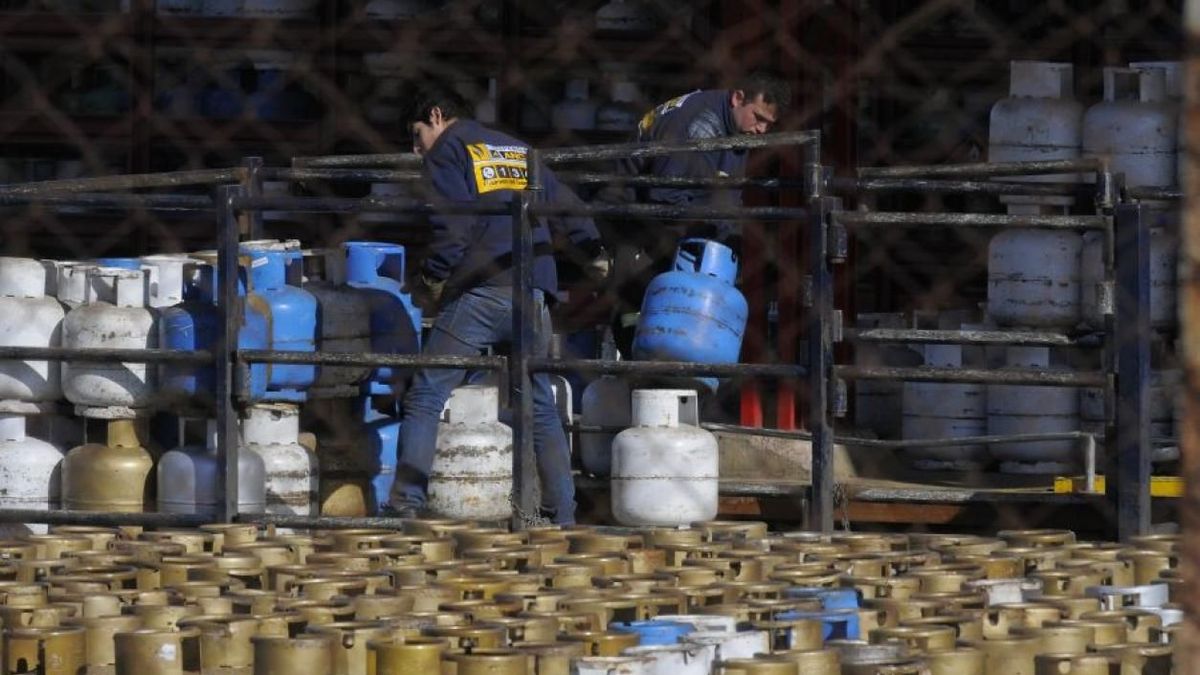The government extended the 50% subsidy for 180 days in the refills of supergas bottles of 13 kilos in Uruguay for those citizens who are beneficiaries of government plans Ministry of Social Development (Mides).
After the joint work of the National Administration of Fuel, Alcohol and Portland (Ancap) and the ministries of Industry, Energy and Mining (MIEM) and Social Development, the Executive Power decided to extend the current benefit in supergas as of July 1, for another 180 days. That is, until the end of 2023.
During the press conference in which the announcement was made, the head of Mides, Martin Lema, stressed that this measure exceeded one million recharges throughout the country and which was used by 188,000 households Throughout the national territory. Likewise, he recalled that the almost 230,000 users included in the ministry’s plans can access two recharges with a 50% discount and a third with a 15% benefit in price.
“We found that we reached one million refills of 13-kilo supergas bottles at 50%,” explained Lema, explaining the reason behind the extension of the program: the great acceptance among its beneficiaries.
“The good management of public companies reaches directly in a favorable way to the most vulnerable households”, considered the Minister of Social Development. Meanwhile, the head of the MIEM, Omar Paganini He maintained that the government’s intention is to focus efforts on those who need it most.
In this sense, the recipients are beneficiaries of Family Allowances-Equity Plan, who receive card Social Uruguayold-age assistance or family allowances from the Social Welfare Bank (BPS) up to the first rank.
Ancap’s profits and losses
In its balance for the first quarter of this year, ancap recorded a positive balance of 73 million dollars, even though he lost 10 million dollars in the monopoly market, product of the setting of tariffs by the Executive power below the Import Parity Price (PPI).
When analyzing the figures in the report, the president of Ancap, Alejandro Stipanicic, considered that they are due to the profits in the non-monopoly businesses of the entity, the result of its associated companies and the sale of energy to UTE.
It is that the non-monopoly businesses of ancap recorded a profit of 36 million dollars, what they should join 18 million dollars of sales made to UTE for electricity generation and 8 million of the profits of its related companies. In addition, the entity generated profits of 13 million for the appreciation of the Uruguayan peso, six million for income tax due to accounting for deferred tax and two million for other income.
These numbers contrasted with the losses in the monopoly market, which reached 10 million dollars. According to Stipanicic, Ancap billed for about 1 billion dollars and resigned some 23 million dollars due to the setting of tariffs below the Import Parity Price (PPI), which had to do with the decrease in the price of fuels in Uruguay. Counting that amount, the company would have received earnings for 13 million dollars “in a perfectly competitive market,” he said.
Source: Ambito




